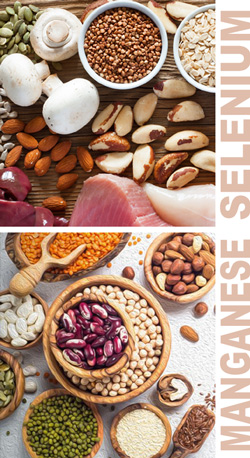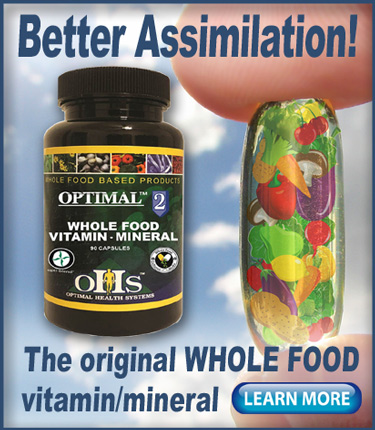Most expectant mothers have been told by their doctor to take a folic acid supplement during their pregnancy; however, emerging evidence is showing that selenium and manganese are equally important during pregnancy.
Not only can these minerals play a key part in the development of a baby in utero, they will also set the child up for good health later in life.
One new study found that children who were exposed to higher levels of the two minerals during their mothers’ pregnancy had a lower risk of high blood pressure in their pre-teen and teen years.
The study was led by researchers at the Johns Hopkins Bloomberg School of Public Health and was published in Environmental Health Perspectives in June 2021.
Essential minerals
Selenium and manganese are both essential minerals. This means they must be obtained through diet or supplements because the human body does not make them on its own.
Both minerals are only needed in small amounts, yet most people end up deficient in one or both due to poor diet choices involving high amounts of processed foods.
Selenium is a powerful antioxidant and has been shown to lower the risk of certain cancers while also offering protection against heart disease. Decades of research has shown that selenium is also important for thyroid hormone production, keeping the immune system strong, and for maintaining mental health as people age.
Manganese can be stored in small amounts in the bones, kidneys, liver and pancreas; however, optimal health relies on obtaining trace amounts of the mineral through daily diet.
Manganese is vital for bone health and for helping keep inflammation in check. Like selenium, it is also important for proper thyroid function and for maintaining a strong immune system.
Study details
The researchers analyzed the levels of toxic metals and trace minerals in blood samples drawn from nearly 1,200 women in the Boston area. All the women had given birth between 2002 and 2013.
The researchers found that higher levels of selenium or manganese in the mothers’ blood were associated with lower blood pressure readings in their children at clinic visits 3 to 15 years later.
The researchers also observed that manganese had a stronger inverse relationship with childhood blood pressure when the mother’s blood levels of cadmium were higher. Since cadmium is a toxic heavy metal, the results suggest manganese lowers blood pressure in part by countering the blood pressure-raising effect of heavy metals.
The dataset used for the analysis covered 1,194 mother-child pairs from a study known as the Boston Birth Cohort.
“These results suggest that healthy levels of selenium and manganese in mothers’ diets during pregnancy may protect their children against developing high blood pressure,” said study senior author Noel Mueller, assistant professor in the Bloomberg School’s Department of Epidemiology. “This work highlights the importance of nutrition and environmental exposures in the womb for a child’s cardiovascular health and, as we continue research this further, could eventually lead to updated nutritional guidance and environmental regulations aimed at preventing disease.”
High blood pressure risk
Although the overall benefits of selenium and manganese to the human body have been known for decades, it is only recently that the positive effects of these minerals for a baby in utero have been brought to light.
Past research has shown that the predisposition to high blood pressure may begin early in life. Some scientists had previously hypothesized that this predisposition may even start in the womb. The current study makes this theory more plausible, and highlights the importance of mothers fortifying their developing babies with the right vitamins and minerals before they are even born.
The research is especially important when understanding that hypertension is linked to so many other health conditions. If a simple step in pregnancy—supplementing selenium and manganese—lowers the risk of high blood pressure later in life, it also reduces other health problems.
Food sources
Selenium is primarily found in protein foods. Good sources include fish, turkey, eggs and nuts—especially Brazil nuts. Vegetarian sources of selenium include brown rice, mushrooms, sunflower seeds, lentils, cashews, bananas, oatmeal, brie and spinach.
Foods that will help you increase your intake of manganese include: brown rice, chickpeas, pineapple, hazelnuts, spinach and potatoes. Keep in mind that high heat and other forms of processing can remove nutrients from foods.
Optimal 2 Whole Food Vitamin/Mineral from Optimal Health Systems is your perfect choice for supplementing selenium and manganese.
Optimal 2 Whole Food Vitamin/Mineral contains 24 potent whole food vitamins and patented organic minerals—with no synthetics!
Visit the product info page here or click the sidebar banner ad for more information.
– – –
Sources: Environmental Health Perspectives, Johns Hopkins Bloomberg School of Public Health.



